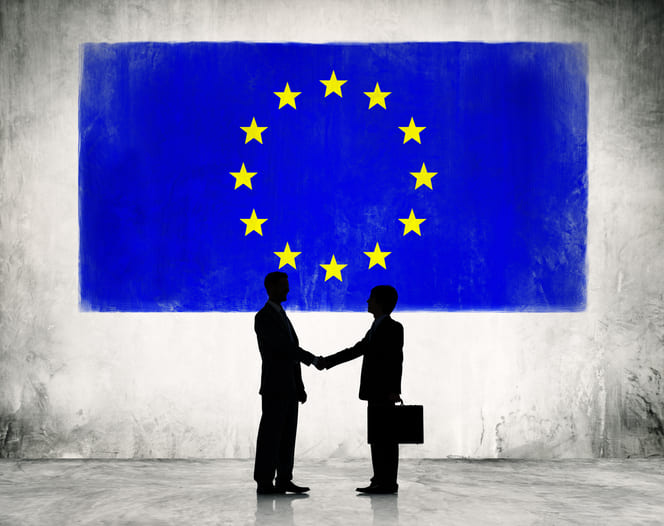The potential return of Donald Trump to the presidency has already sparked conversations around how his administration could influence global business. Europe, a major economic partner of the United States, is particularly attuned to how policy shifts could reshape transatlantic trade, investment, and business strategies. Trump’s previous term demonstrated his willingness to renegotiate trade deals, push for American economic dominance, and challenge multilateral frameworks. If he resumes office, businesses in Europe will need to adjust their strategies to navigate these shifting tides.
Interestingly, these shifts could also impact emerging sectors like cryptocurrency, where new policies might encourage or restrict innovation. For instance, the growth of new crypto casinos—a booming segment in Europe—may see ripple effects from changing international regulatory stances. Let’s explore what the future might hold for European businesses under a new Trump administration.
Transatlantic Trade: Opportunities and Challenges
1. The Return of Tariff Tensions?
Trump’s first administration was marked by the imposition of tariffs on European goods, including steel, aluminum, and certain agricultural products. These measures often led to retaliatory tariffs from the European Union, creating tension and uncertainty for businesses on both sides of the Atlantic. If Trump returns to office, it’s likely that protectionist policies will resurface, impacting sectors such as automotive manufacturing, luxury goods, and tech exports.
For European businesses reliant on U.S. markets, this could mean increased costs and the need for more flexible supply chains. Companies may need to revisit strategies, such as diversifying export markets or investing in domestic production capabilities within the U.S.
2. Bilateral Trade Agreements Over Multilateral Deals
Trump has historically preferred bilateral agreements over multilateral trade frameworks. European businesses could see an opportunity to negotiate direct trade deals with the U.S., potentially bypassing broader EU policies. While this might provide advantages for certain industries, it could also lead to a fragmented approach, creating winners and losers within Europe’s business ecosystem
Tech and Innovation in the Crosshairs
1. Tighter Regulations on Digital Trade?
Trump’s administration previously showed interest in curbing the influence of foreign tech giants and strengthening U.S.-based innovation. European tech companies, particularly those in sectors like fintech and eCommerce, may face increased scrutiny under policies designed to give American companies a competitive edge.
On the flip side, European businesses might also benefit from U.S. efforts to strengthen intellectual property protections and data-sharing agreements. Collaboration in areas like artificial intelligence and blockchain could see renewed focus, creating avenues for innovation and growth.
2. Cryptocurrency: A Wild Card
The cryptocurrency sector, which has seen explosive growth in Europe, may experience significant changes under a Trump administration. While Trump has historically been skeptical of cryptocurrencies, any future policies targeting digital currencies in the U.S. could have ripple effects across Europe.
Crypto casinos that allow users to gamble with digital assets, exemplify how European businesses are leveraging cryptocurrency’s potential. If Trump’s administration enacts stricter regulations on crypto, it might drive more investors and platforms to Europe, positioning the continent as a global hub for digital innovation. Conversely, regulatory uncertainty could slow the sector’s growth, affecting industries that rely on blockchain technology.
Energy Policies and Their Impact on European Industries
Energy policy will likely remain a focal point under a new Trump administration, with an emphasis on boosting fossil fuel production and reducing reliance on renewable energy initiatives. For Europe, which has committed to ambitious climate goals, this divergence could complicate collaboration on energy policy and trade.
Industries dependent on energy-intensive processes, such as manufacturing and transportation, might see cost disparities grow between Europe and the U.S. However, this also opens opportunities for European businesses specializing in green tech to position themselves as leaders in renewable energy solutions, both domestically and internationally.
Navigating Uncertainty: Strategies for European Businesses
1. Diversifying Markets
To mitigate the risks of potential trade conflicts or tariffs, European companies should explore opportunities in other global markets. Expanding into Asia, Africa, and Latin America can help businesses reduce their reliance on U.S. demand and provide a buffer against political uncertainty.
2. Strengthening U.S. Partnerships
Despite potential challenges, businesses that maintain strong relationships with American partners could still find success. Establishing joint ventures, local manufacturing facilities, or U.S.-based offices can help European companies navigate protectionist policies while maintaining access to American consumers.
3. Investing in Innovation
In an era of rapid technological change, European businesses must continue to prioritize innovation. Whether it’s through digital transformation, adopting blockchain solutions, or expanding into emerging markets, staying ahead of the curve will be critical for long-term success.
The Road Ahead
A new Trump administration would undoubtedly bring changes to the global business landscape, but European companies have shown resilience and adaptability in the face of such challenges before. While potential policy shifts may create new obstacles, they also present opportunities for growth, collaboration, and innovation.
For businesses in Europe, the key will be staying informed, agile, and prepared to navigate the complexities of a changing transatlantic relationship. Whether through diversifying markets, investing in emerging sectors like cryptocurrency, or building stronger ties with American partners, Europe is well-positioned to thrive—regardless of who sits in the Oval Office.




































